|
|
ANCIENT SEAL BEAD AMULETS: A SYMBOL OF STATUS AND
PROTECTION
One of the fascinating aspects of ancient
jewelry is the fusion of form and function. This is particularly true
for seal bead amulets, which were as much a practical tool as they were
ornamental. As the name suggests, these items were usually bead-like in
shape, often with at least one flat side that was meticulously engraved
with symbolic designs or scripts.
The process of using these seal beads involved first pressing them into
a medium such as sealing wax, clay, or even inking them and then
pressing onto paper. This action would produce a mirror image of the
seal's engraving. The intention behind this was not purely aesthetic but
served an important practical purpose: to signify the identity or
authority of the owner.
The possession of a seal bead amulet was a symbol of status and power,
signifying a high social position in ancient societies. They were more
than just indicators of rank, though. These intricately carved seals
also held a spiritual or protective function. They were believed to
serve as talismans or amulets, providing protection to their owners.
This is a testament to the spiritual and supernatural beliefs prevalent
in these ancient societies, where objects could be imbued with
protective or beneficial properties.
Seal bead amulets remained in use for a remarkably long period. They
were particularly prevalent in Eastern Persia and Afghanistan, where
their use continued until the beginning of the 19th century. Today,
these seal bead amulets are valuable artifacts that offer a glimpse into
the cultures and customs of these ancient societies. They reveal a world
where jewelry was not just for adornment, but a tool for authentication
and a potent symbol of protection.
Royal Lion Seal |
The beads in
my collection
are now for sale
Inquire
through bead ID
for price
|
|
|
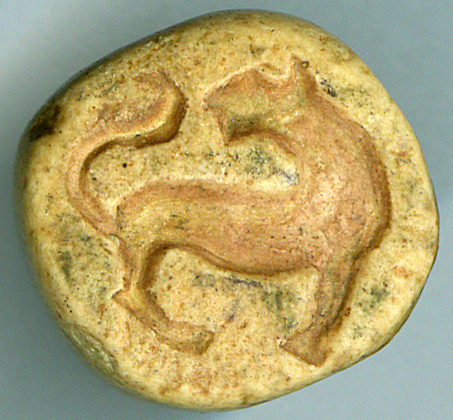
|
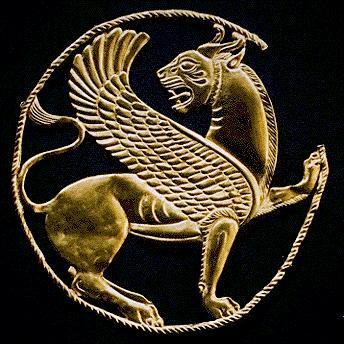
SB 1 -
18 * 18 * 17 mm
Click on pictures for larger version
|
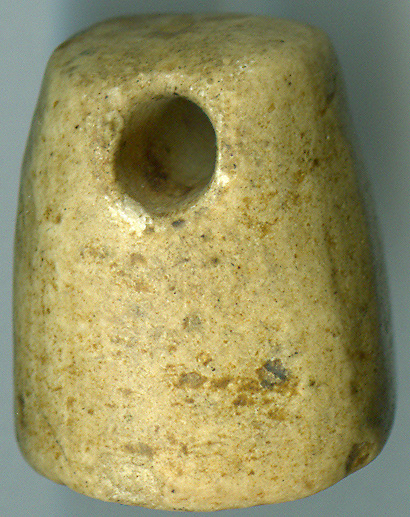 |
|
A Glimpse of the Persian Achaemenid
Empire (550-330 BC) Through Lion Seal Amulets
The compelling seal showcased above, along with all the seals presented
here, were sourced from Afghanistan. However, they all unmistakably
belong to the Persian culture, specifically to the influential Achaemenid
Empire that thrived from 550 to 330 BC.
The lion depicted on the seal adopts the same pose as the
Golden Lion,
an iconic representation associated with the Achaemenid era. The
striking similarity indicates the overwhelming dominance of Persian
culture in the region during this period.
Dating back to ancient Mesopotamian times, the lion has been a
significant symbol of kingship. This emblem of power and royalty was
used exclusively by the king or his administration in seal form. The
lion was not merely a royal symbol; it was viewed as a royal animal.
Only kings and their noble peers were permitted to keep or hunt lions,
underlining the lion's status as a symbol of supreme authority.
The Achaemenid culture, from which this seal likely originates, upheld
these traditions, cementing the lion's place as a crucial cultural
symbol throughout this empire's reign.
Below, you'll find what is probably a primitive representation related
to the standard of Cyrus the Great, the founding father of the
Achaemenid Empire. The integration of these symbolic elements in seal
amulets highlights the empire's societal norms, beliefs, and power
structures, providing us with a richer understanding of its rich
historical tapestry.
|
|
|
|
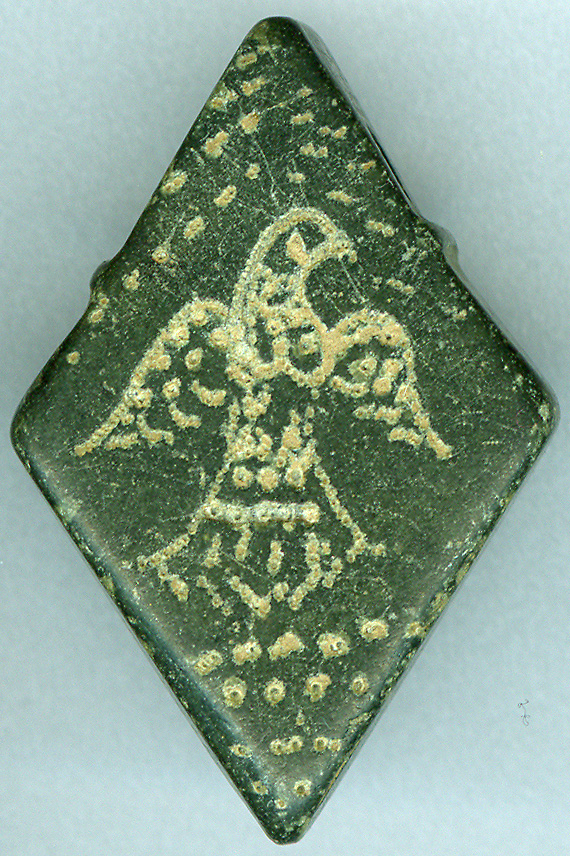
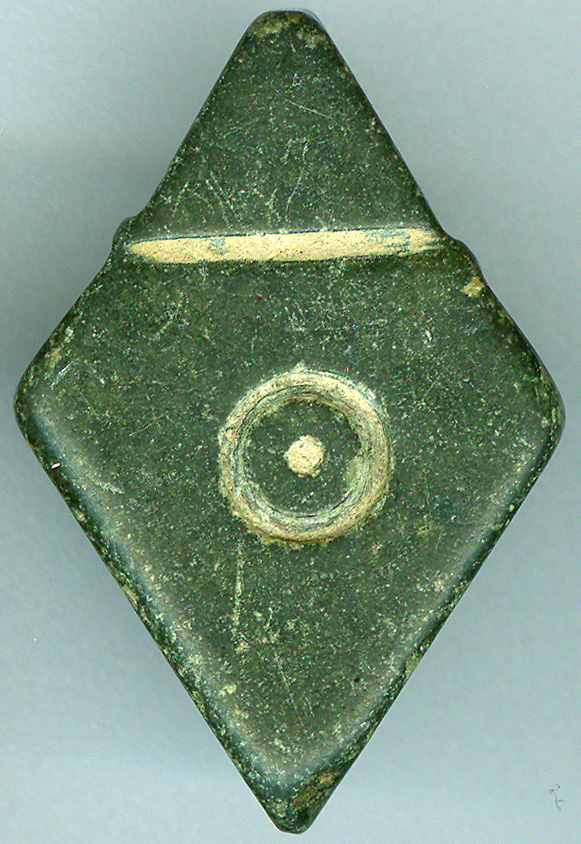
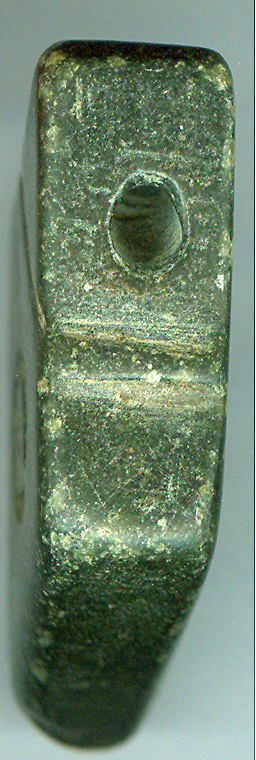
Click on above pictures for larger versions
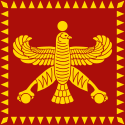
|
Since the era of Cyrus the Great, Afghanistan has been a vibrant
cultural crossroads. Located along significant trade routes, it absorbed
and integrated a myriad of cultural influences from neighboring
civilizations, including Persia and India.
The jasper seal showcased below exemplifies this cultural intermingling.
The presence of the swastika, a prominent motif in both Buddhism and
Hinduism, clearly points to Indian influence. In Buddhism, the swastika
is considered a symbol of eternal cycling and infinity, while in
Hinduism, it's seen as a mark of auspiciousness and good fortune. The
fact that this symbol appears on a seal from a region primarily under
Persian influence highlights Afghanistan's role as a dynamic melting pot
of diverse cultures and traditions.
|
|
|
|
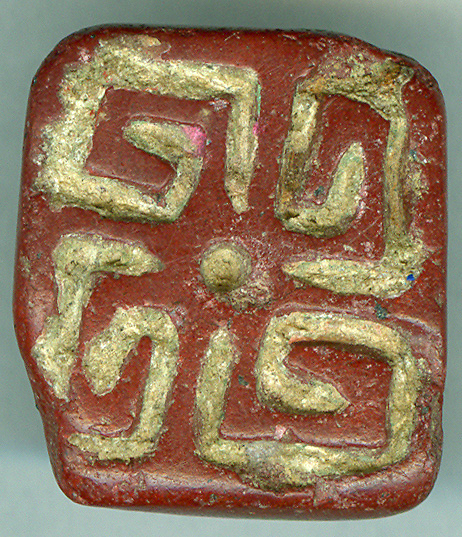
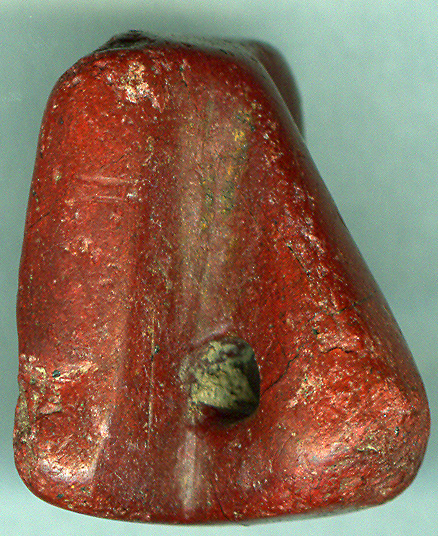
SB 2 - 20 * 18 * 15 mm
Click on pictures for larger version
|
|
|
|
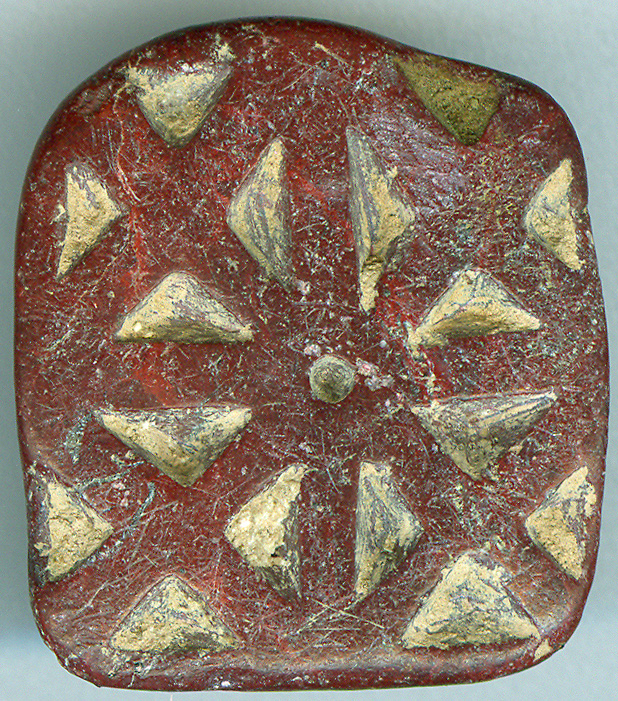
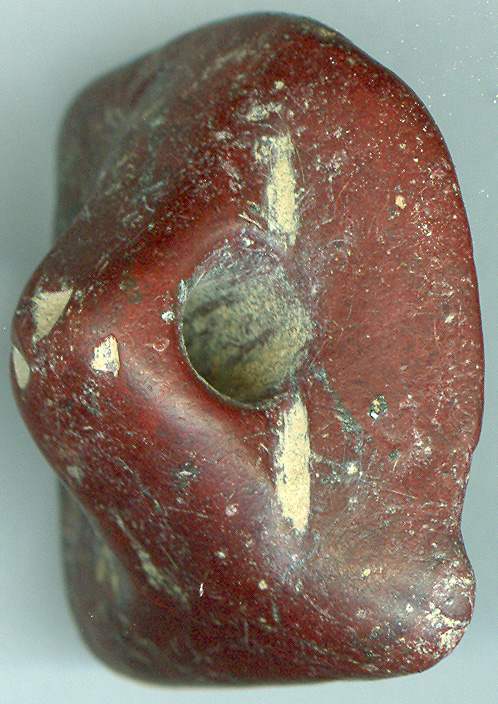
SOLD
Click on pictures for larger version
|
|
|
|
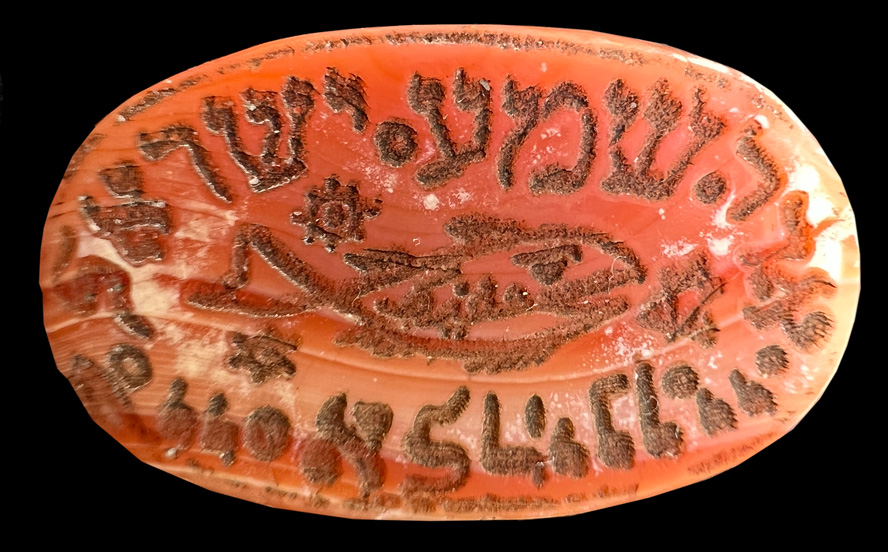
Ancient
Jewish Intaglio in carnelian stone - 26 * 16 *
6 mm
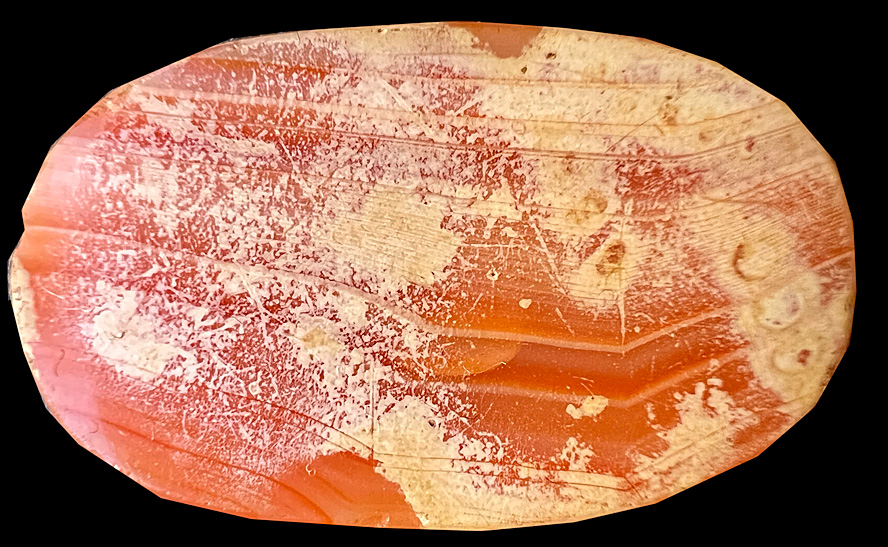

Shema Yisrael: Echod Mashem Elomaynu
Mashem Yisroel Shmah
Hear, O Israel: the LORD is our God, the LORD is one
|
This is a fascinating piece! The inscription "Shema
Yisrael: Echod Mashem Elomaynu Mashem Yisroel Shmah," is
a slight variation of the central Jewish prayer, the
Shema, which reads "Hear, O Israel: the LORD is our God,
the LORD is One" (Deuteronomy 6:4). This prayer has a
central place in Jewish worship and is considered a
declaration of faith and an affirmation of monotheism.
The depiction of the fish in the center could indeed be
seen as a protective symbol, as per the Talmudic
tradition. In Judaism, the fish is often seen as a
symbol of fertility and good luck, and it is believed to
provide protection against the evil eye - a malicious
stare believed to cause harm or misfortune. The evil eye
is a common belief in many cultures around the world,
and protective amulets often bear symbols believed to
guard against its effects.
As for the craftsmanship, the somewhat crude engraving
might indeed suggest that this is provincial work. It's
worth noting that during the ancient times, carnelian
was a popular stone for intaglio work due to its
hardness and the beautiful contrast between its
orange-red color and the white lines that appear when it
is engraved. A less refined carving could be indicative
of the artisan's skill level, the tools available, or
the prevailing style of a particular region or period.
In summary, this intaglio is a remarkable artifact that
intertwines religious devotion, cultural belief in
protective symbols, and artisanal craftsmanship. It
provides an intriguing glimpse into the spiritual and
material life of the Jewish communities in the ancient
world.
A strange seven spoked wheel seal
|
|
|
|
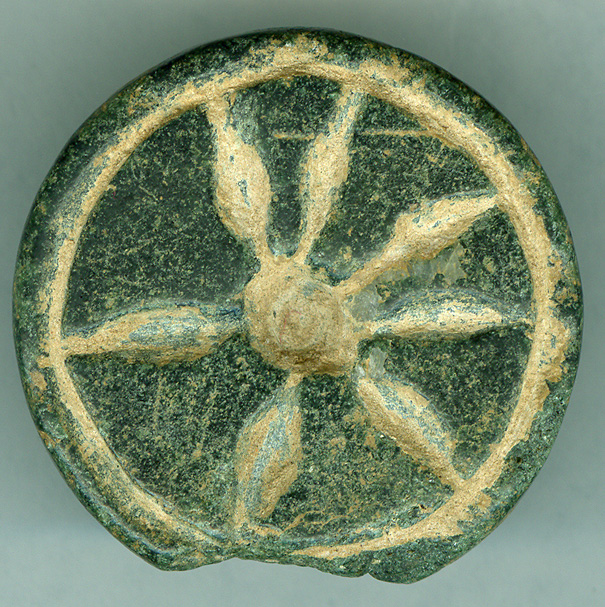 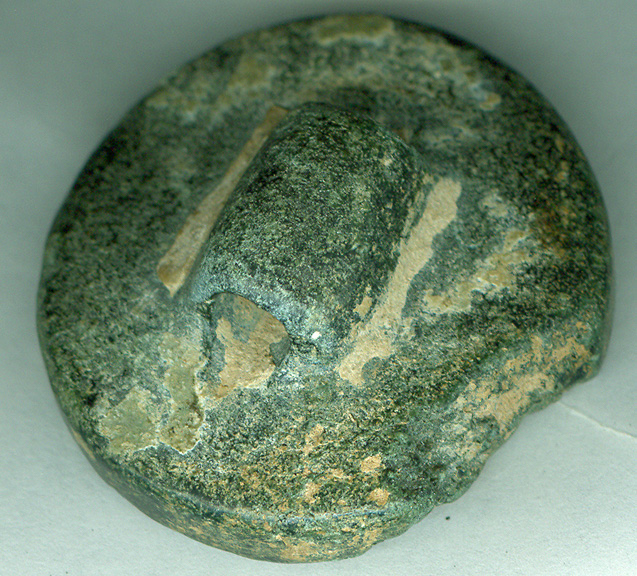
SB 3 - 33 * 13 * 5 mm
- SOLD
|
SASSANIAN SEAL BEADS
The subsequent seals showcased
here belong to the
Sasanian Empire,
an Iranian civilization that spanned from 224 to 642 AD. These
artifacts, despite being uncovered in Afghanistan, attest to the
far-reaching influence of this last pre-Islamic Persian dynasty.
The Sasanian Empire, also known as Sassanian, Sasanid, or Neo-Persian
Empire, was an influential period in the history of Iran, notable for
its significant contributions to art, architecture, and culture. This
period marked a renaissance of Persian traditions after centuries of
Hellenistic influence.
A striking feature of Sasanian art was the use of intricate seal
carving, a tradition that was highly regarded and developed into a
sophisticated art form. The seals were typically made from semi-precious
stones and carved with intricate designs, often representing Persian
royal and religious iconography. They were not only used for official
and personal purposes, such as stamping documents or sealing containers,
but were also worn as beads, signifying the status and identity of the
bearer.
Most of the seal beads displayed here are sourced from Afghanistan.
Sassanian seal beads are even found in China. Given the exchange of
goods, ideas, and cultures along the Silk Road and other trade routes,
it is not surprising to find Sasanian artifacts in Afghanistan. This
reflects the vast geographical expanse of the Sasanian Empire and its
sphere of influence. The beads/seals shown here provide intriguing
glimpses into the rich historical tapestry of the time, illustrating how
cultural artifacts travelled and intermingled across regional
boundaries.
The Lion King bead
|
|
|
|

SSB 1 - 25
* 18 * 13 mm
The Lion King
Click for more pictures
|
Determining the authenticity of
an artifact can be a challenging endeavor, given the complexities of
historical periods, cultural influences, and the techniques employed in
creating such items. The seal showcased above, according to most
specialists, appears to be a reproduction rather than an authentic
artifact from the Sasanian Empire. The techniques used, the materials,
the wear patterns, and the iconography might all provide clues that
suggest it's not from the claimed historical period.
However, the view that this might not be a Sasanian seal but a piece
created around 500 years ago, during the late Middle Ages or early
Renaissance, provides an alternative perspective. It's conceivable that
artisans from this later period, whether due to cultural continuities or
intentional revival of older styles, might have produced works
resembling Sasanian seals.
To resolve this matter, a more in-depth examination might be needed,
possibly involving techniques like thermoluminescence dating,
spectrometric analysis or even microscopic examination to understand its
age and origin better. Such an investigation would help to identify the
source of the material, the tool marks, and the age of the wear
patterns, among other things.
In the end, whether a counterfeit or a relic from a later period, the
seal remains an interesting piece that speaks to the long-lasting
influence of Sasanian artistry and the sometimes blurry lines of
authenticity and replication in the realm of historical artifacts.
|
|
|
|
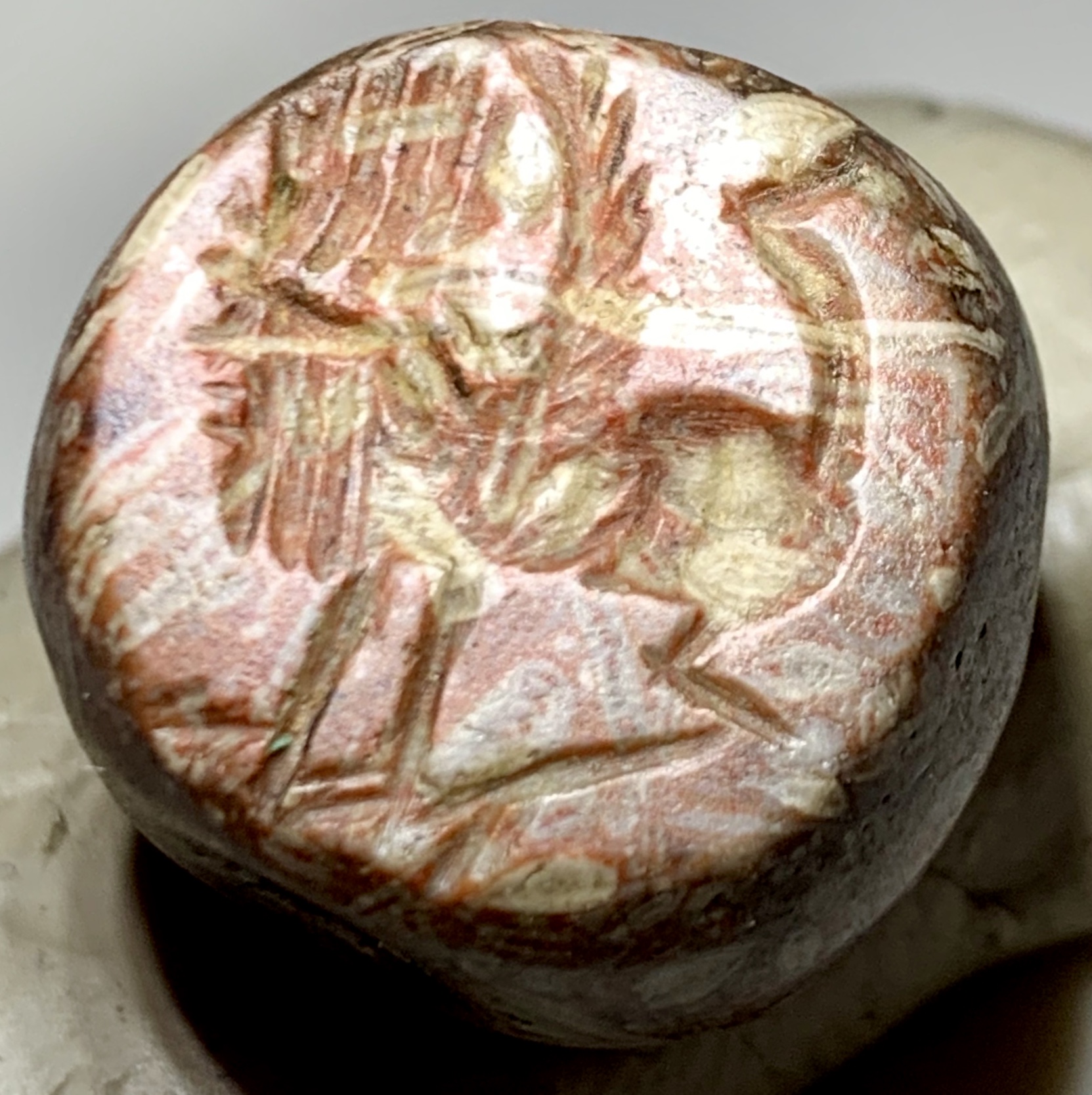
SSB 1 - 20
* 18 * 16 mm
Click for more pictures & information
|
The seal shown above is indeed
captivating, likely featuring a winged lion. Winged lions are ancient
symbols found in various cultures, often symbolizing power, protection,
and divine or royal authority. They are most commonly associated with
the ancient civilizations of Mesopotamia but can be found in various
others as well.
The choice of material for this seal—fossilized jasper—is equally
intriguing. Jasper, a form of chalcedony, is renowned for its durability
and diverse array of colors and patterns, making it a popular choice for
carving and jewelry throughout history.
Royal Lion Seal Bead
|
|
|
|
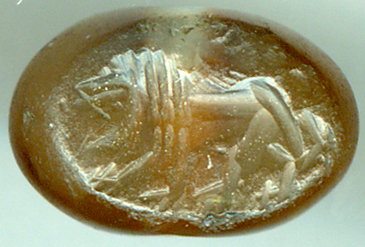
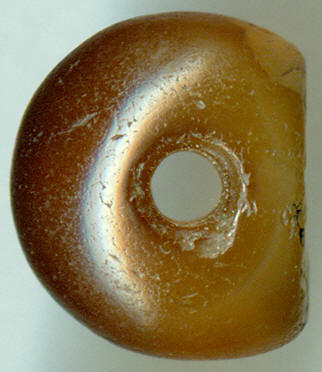
SB 4 - 15 * 12 * 9,5 mm
|
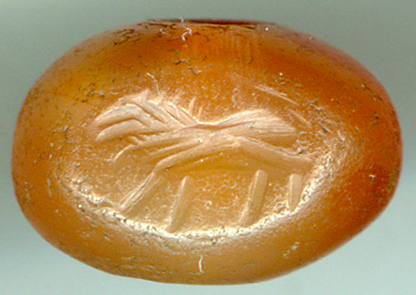
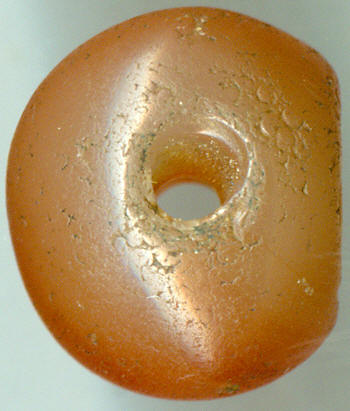
SB 5 - 17 * 14 * 11 mm
|
The Gayomard Seal Bead
The Gayomard Seal Bead displayed below holds a remarkable place in the
cultural and religious history of Sasanian Iran. The
obligation for every free man to wear a stamp seal
signifies the importance of individual identity and
personal symbol in the Sasanian society. The fact that
these seals frequently depicted astrological symbols
further reveals the significant influence of astronomy
and astrology in their worldview.
This seal is particularly fascinating as
it illustrates the constellation Orion along with
Sirius, also referred to as the Dog Star. This depiction
ties the seal to a profound myth in Zoroastrianism, an
ancient monotheistic religion of the region.
|
|
|
|
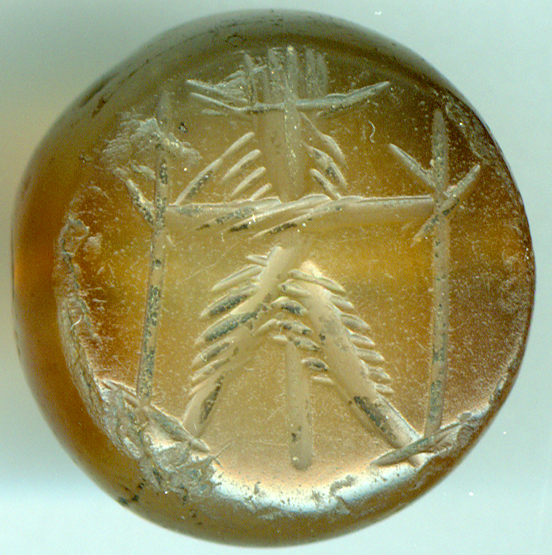
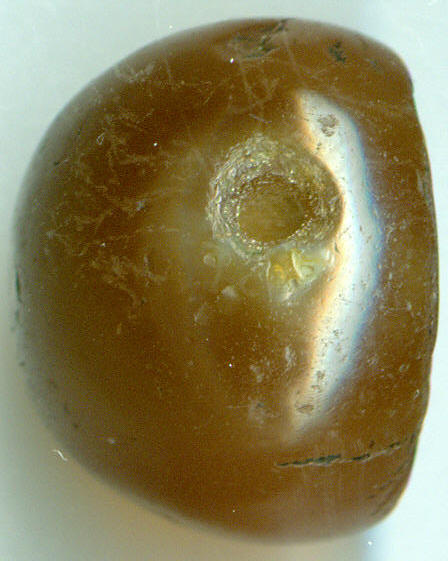
SB 6 - 22,5 * 21 * 16 mm
Click on pictures for larger version
|
|
In Zoroastrian mythology, Gayomard is considered to be
the first mortal human ancestor. After his death, the
story goes that he was guided over the Bridge of
Separation (the Chinvat Bridge, a sifting bridge which
separates the world of the living from the world of the
dead) by the light of Sirius. This celestial body is
personified as his loyal dog, Yellow Ears. Thus,
Gayomard came to be associated with escorting the
deceased to the underworld, an essential figure in
Zoroastrian beliefs about the afterlife.
The interplay of celestial bodies, mythology, and
personal insignia on this seal bead speaks volumes about
the complex cosmological beliefs and social customs of
Sasanian society. It illustrates the deep connection
between personal identity, celestial observations, and
religious beliefs, underscoring the richness and
intricacy of this historical period.
Wheel cut engravings
The use of wheel cutting in creating the Gayomard seal bead indeed
indicates the artisan's proficiency in this ancient method of engraving.
Wheel cutting, which entails the use of a rotating tool to carve or cut
designs into a hard material, has a long history and is not exclusive to
any one culture or time period.
Contrary to the notion expressed by some that wheel cutting might
suggest the artifact is a forgery, this technique is in fact deeply
rooted in history. Its origins can be traced back to ancient China and
the Middle East. Ancient glassworkers, for example, used wheel cutting
to create intricate designs on glassware, a practice that continued into
Roman times and beyond.
The intricate work on the Gayomard seal bead demonstrates the expertise
of ancient artisans in harnessing this technique to create detailed and
meaningful imagery. The bead is a testament not only to the religious
beliefs and astrological understanding of the Sasanian society but also
to the skill and ingenuity of its craftsmen.
As with any historical artifact, it's always essential to consider the
context, provenance, and material evidence in assessing authenticity.
The use of wheel cutting in itself does not signify a lack of
authenticity, but rather aligns with the historical practices of ancient
craftsmanship.
|
|
|
|
|
|
|
|
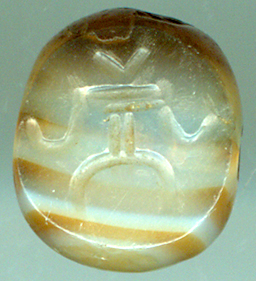 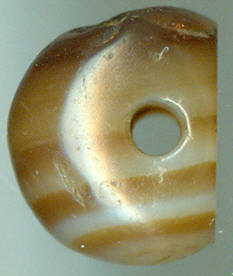
SB 8 -
11 * 9 * 9 mm
|
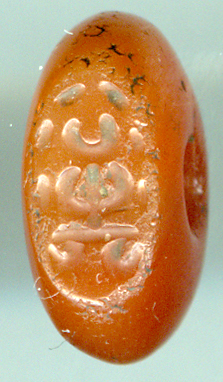
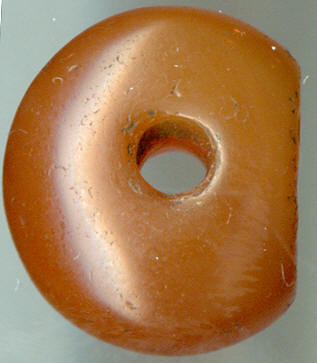
SB 9 -
15 * 13 * 7 mm
|
Sassanian Warrior head Seals
|
|
|
|
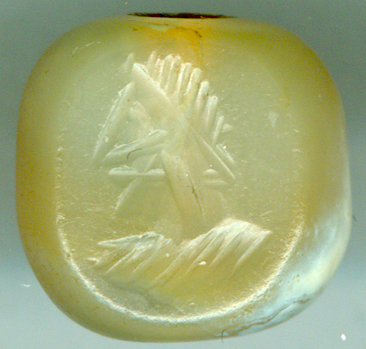
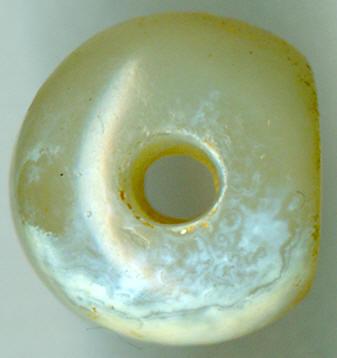
SB 10 - 14 * 12 mm
|
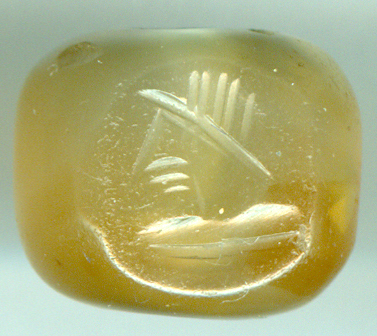
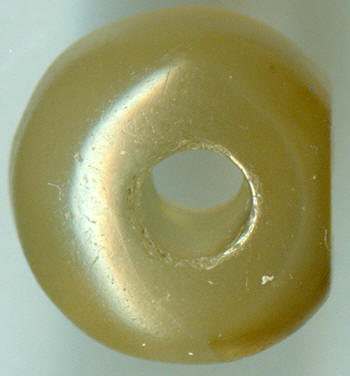
SB 11 - 15 * 13 * 12 mm
|
|
|
|
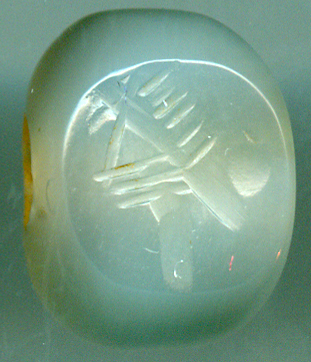 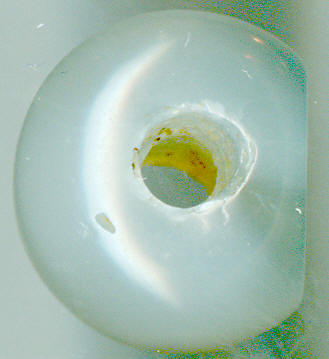
SB 12 - 14,5 * 12 * 11 mm |
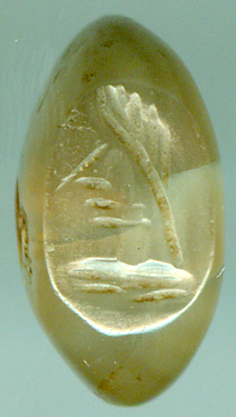
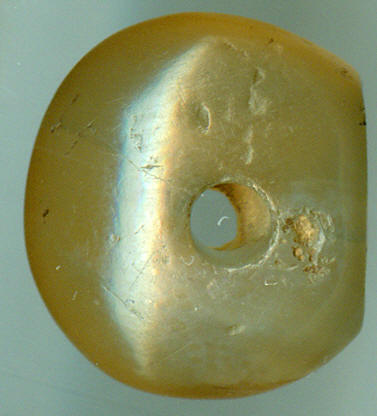
SB 13 - 16,5 * 14 * 8,5 mm
|
|
|
|
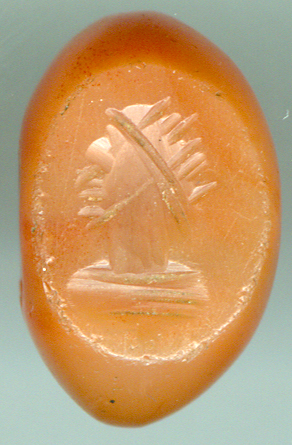
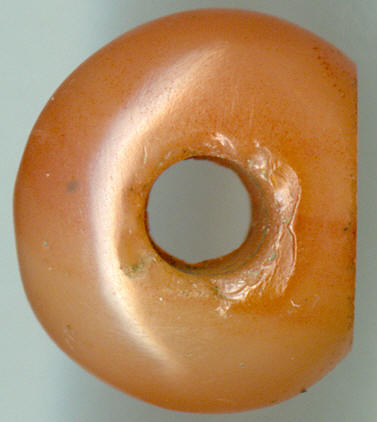
SB 14 - 17 * 14 * 10 mm
|
|
Sassanian Scorpion seal Beads
|
|
|
|
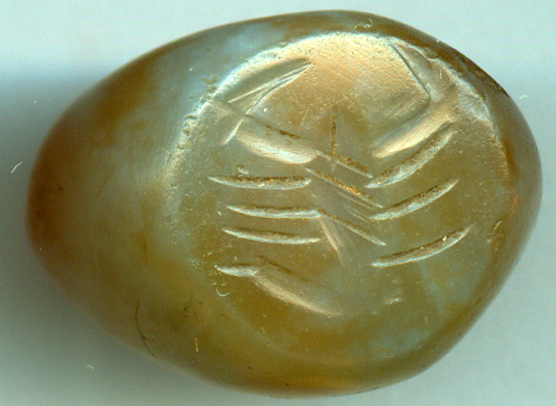
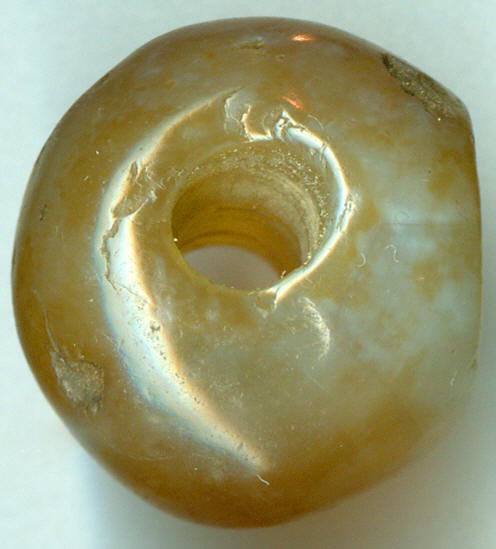
SB 15 - 22 * 19 * 16 mm
|
|
|
|
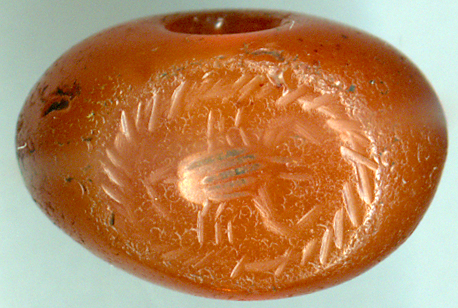
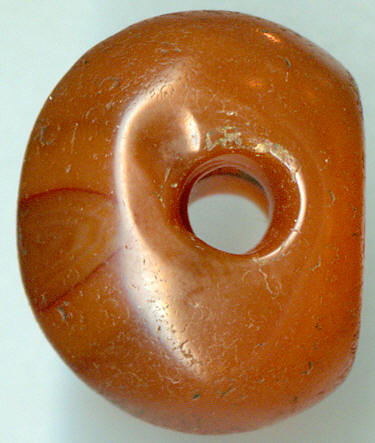
SB 16 - 17 * 14,5 * 11 mm
|
|
|
|
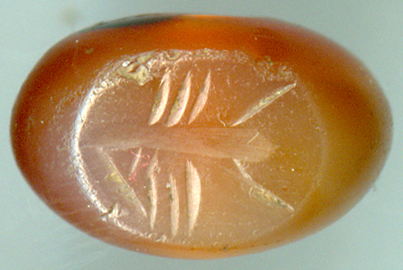
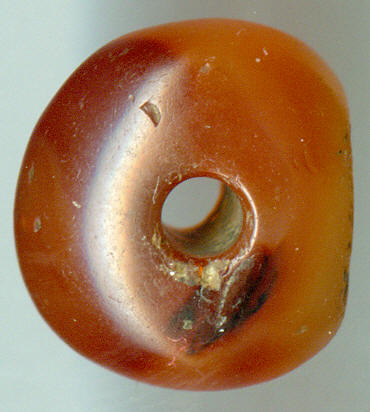
SB 17 - 16 * 14 * 10 mm
|
|
|
|
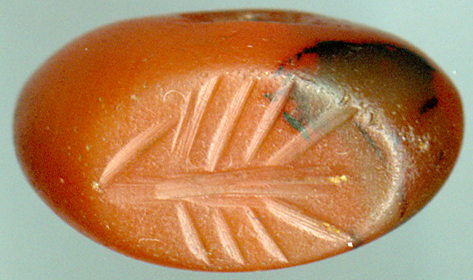 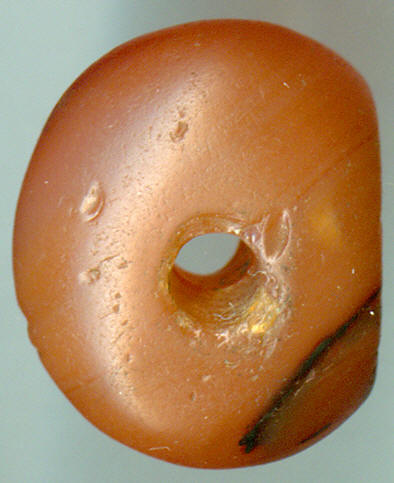
SB 18 - 19 * 15 * 10 mm
|
|
|
|
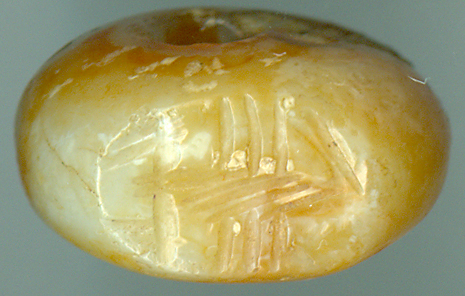 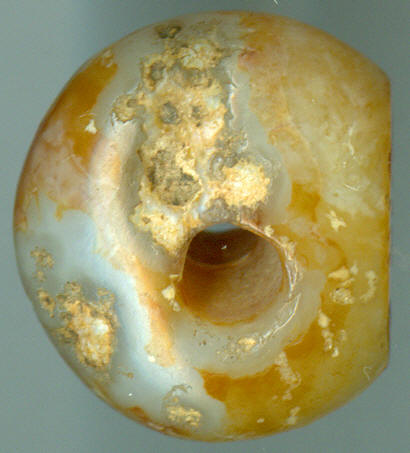
SB 19 - 18 * 15,5 * 10 mm
|
|
|
|
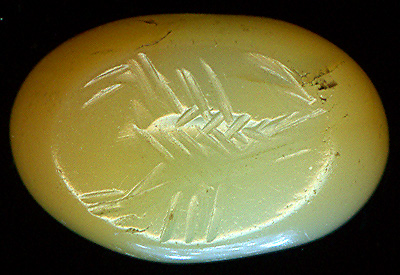 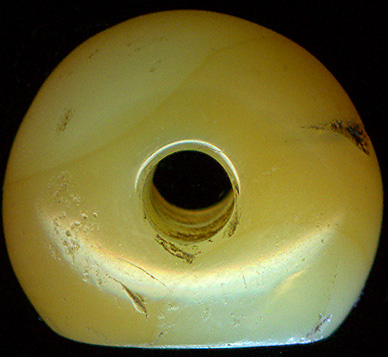
SB 20 - 15 * 15 * 10 mm
|
|
|
|
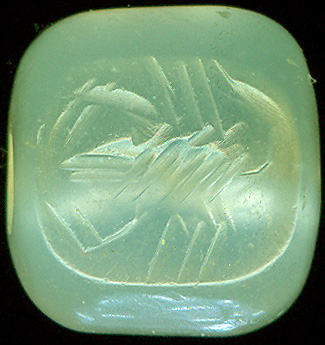 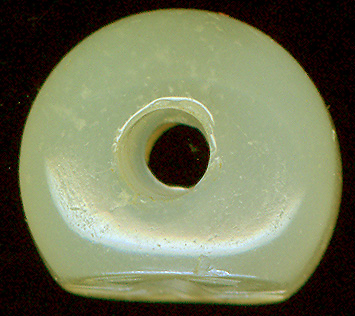
SB 21 -
14 * 13 * 11,5 mm
This scorpion seal bead is made in the Indian translucent moonstone.
I have added light to make the translucent
shine come more out.
|
|
|
|
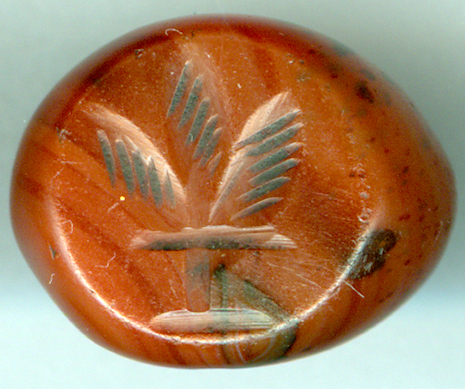
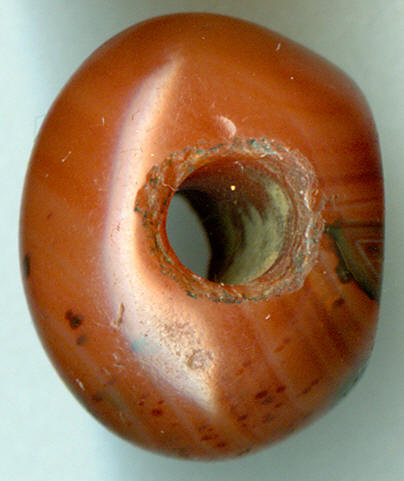
SB 22 - 19 * 15 * 14 mm
|
|
|
|
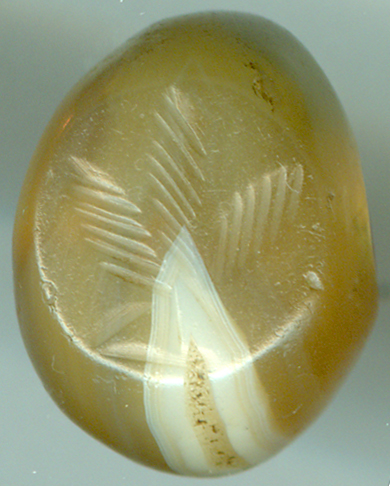 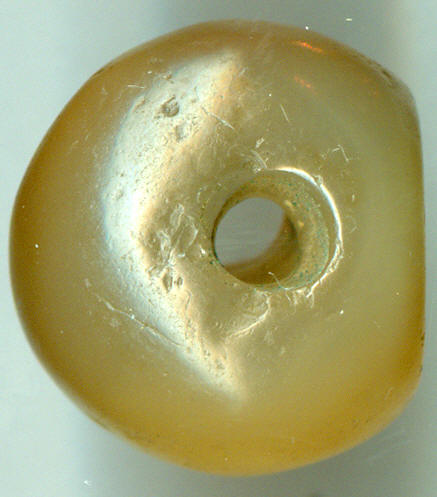
SB 23 - 20 * 17 * 15 mm
|
|
|
|
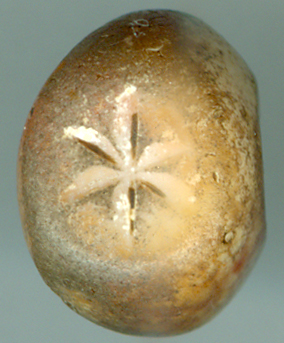
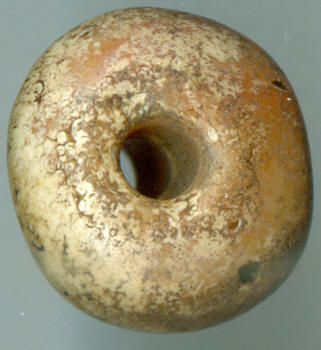
SB 24 - 13,5 * 12 * 10,5 mm
|
|
|
|
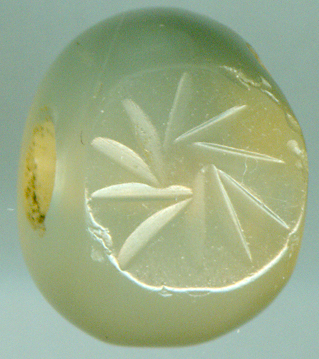
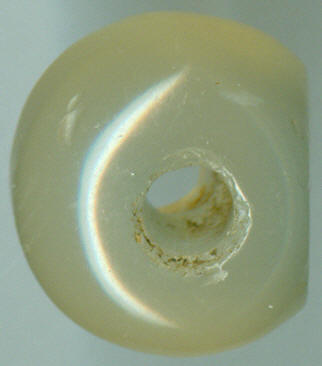
SB 25 - 14,5 * 12,5 * 11 mm
Whirling star motive
|
|
|
|
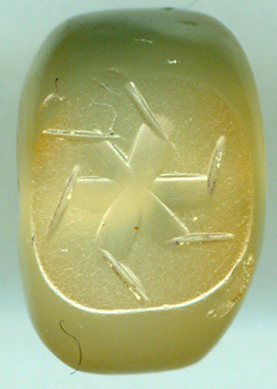
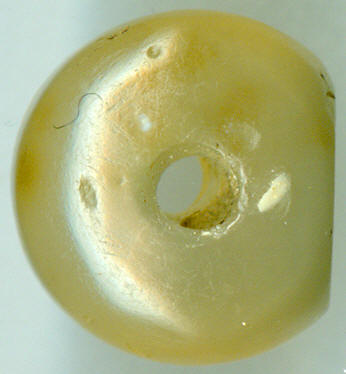
SB 26 - 15 * 13,5 * 10,5 mm
Whirling star motive
|
|
|
|
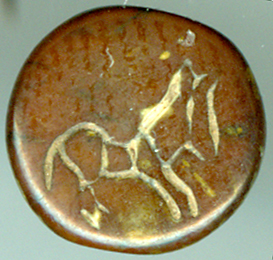 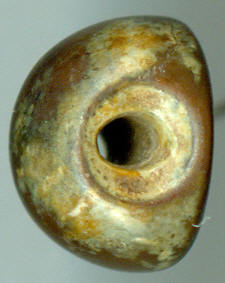
SB 27 -
11 * 10 * 7 mm
This is a very rare seal bead depicting a horse
|
|
|
|
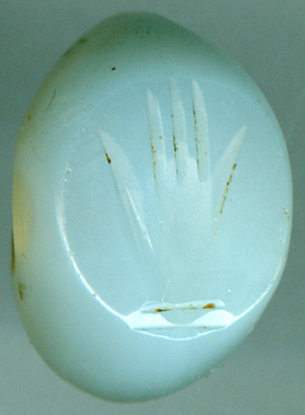
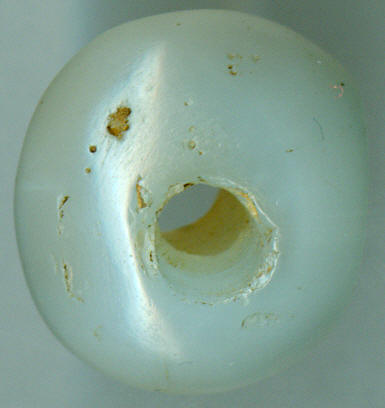
SB 28 -
16 * 14 * 11 mm
Again a rare seal with the Blessing Hand. The Blessing Hand is known back to the
Indus Valley culture, later in Buddhism and in the Sassanian culture.
Later, when Islam became predominant in Persia, the Blessing Hand
survived in the form of
Fatimas Hand
|
|
|
|
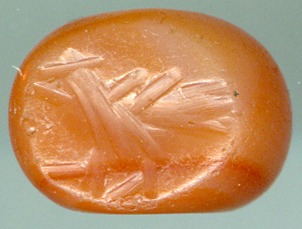 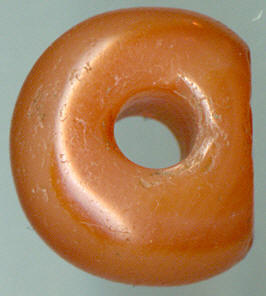
SB 29 - 11,5 * 10 * 8,5 mm
- Bird
|
|
|
|
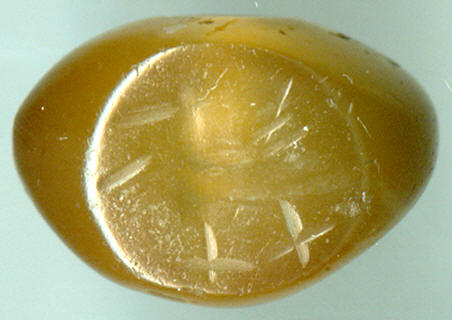 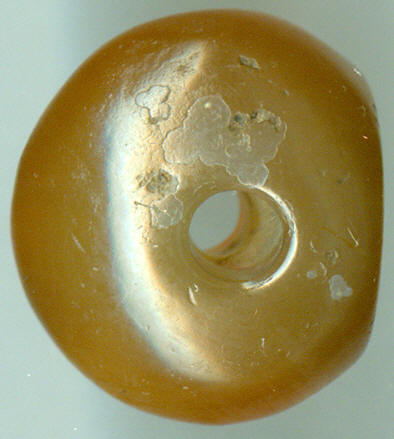
SB 30 -
18 * 15 * 12 mm - Bird
|
|
|
|
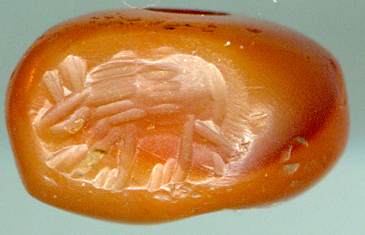
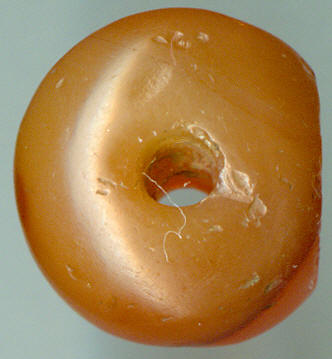
SB 31 -
14,5 * 13 * 9 mm
Animal
|
|
|
|
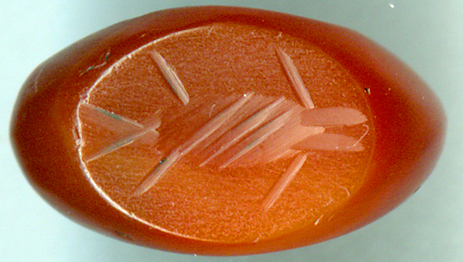
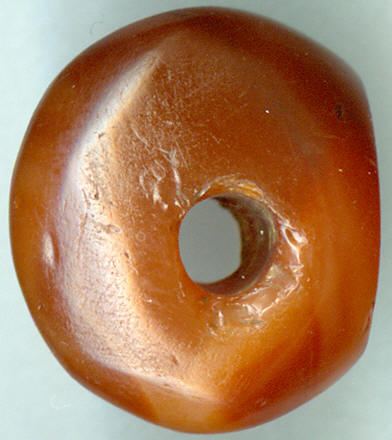
SB 32 - 18 * 15 * 11 mm
Animal
|
|
|
|
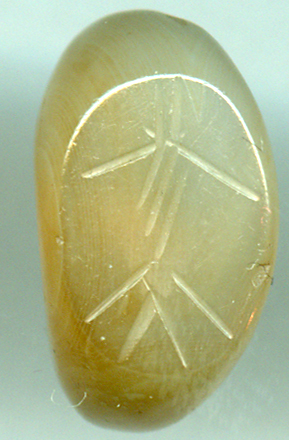 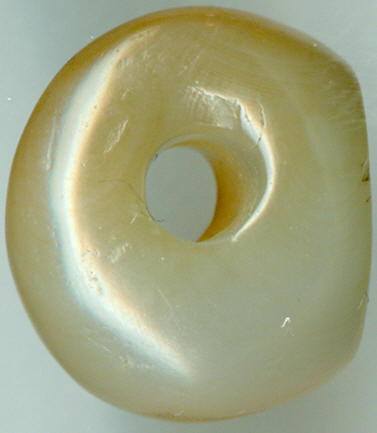
SB 34 - 18 * 14,5 * 10 mm
Animal
|
|
|
|
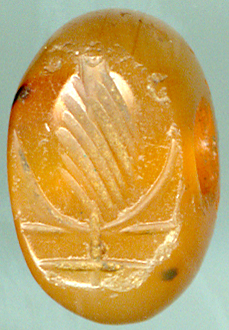 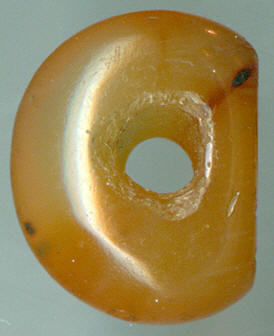
SB 33 -
13 * 10 * 8 mm
Flower vase
|
|
|
|
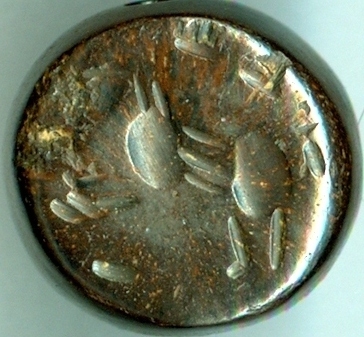
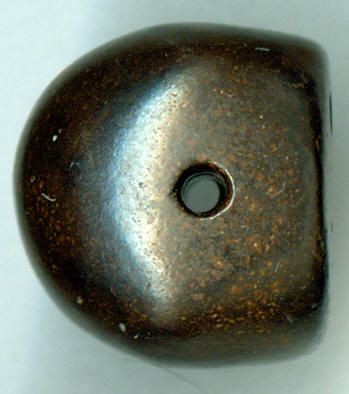
SB 35 -
15 * 14,5 * 13 mm
Hematite bead - Unknown motive
|
|
|
|
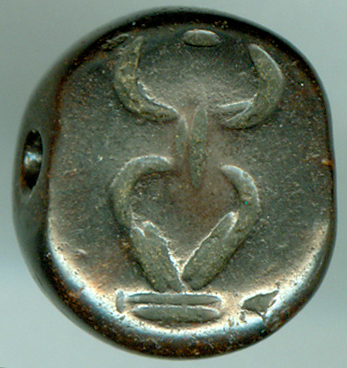
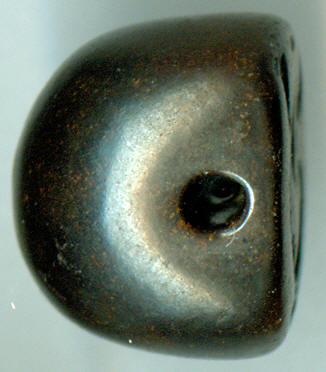
SB 36 -
15 * 13 * 12 mm
Lord Gayomard - the first human
|
|
|
|
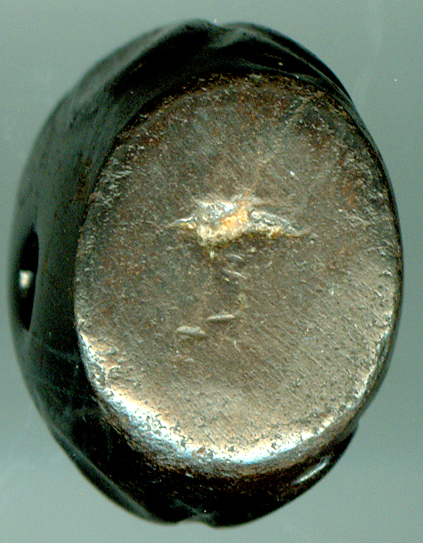
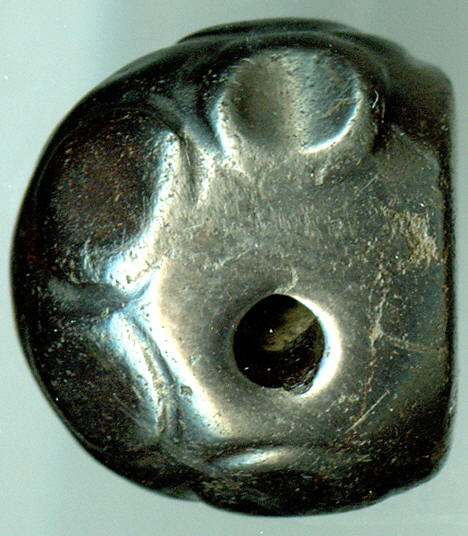
SB 37 -
21,5 * 19 * 15,5 mm
A large hematite seal bead with no motive, but with beautiful decorations.
|
|
|
|
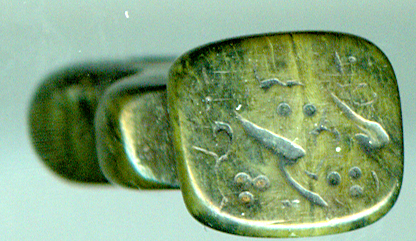
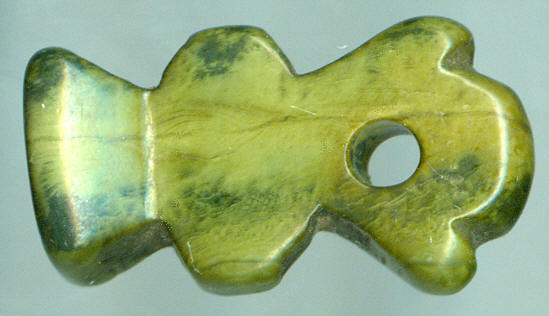
SB 38 -
21 * 11,5 * 8,5 mm
Seal with ancient persian scripture
|
INDIAN SEALS
Mother Goddess Seal Bead |
|
|
|
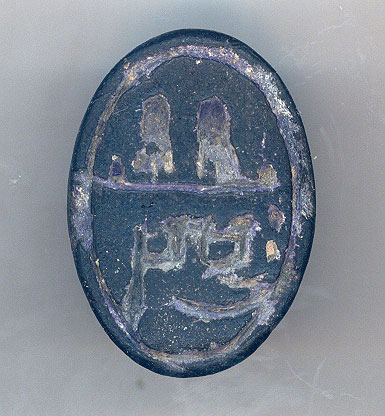
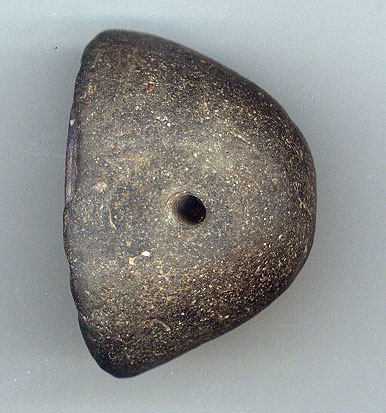
SB 39 -
30 * 20 * 20 mm
|
|
Terra cotta Indus Valley Bull Seals
|
|
|
|
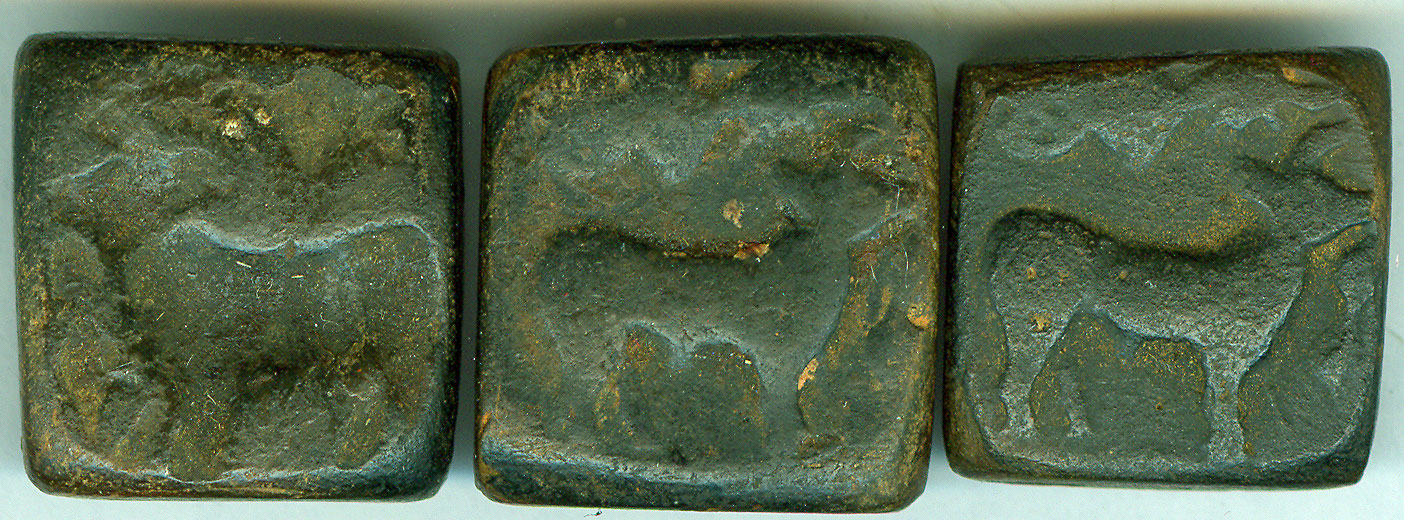
SB 40
-
18 * 18 mm
Indus Valley culture bull seals - before 1000 BC
Click on photos for larger picture
|
|
|
|
|
|
|
|
|